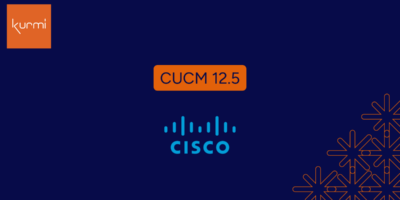PARIS, FRANCE – 17 February 2022
Kurmi Software and Pulse Research have announced findings from the first UCC Management Impact Report: The True Cost of Unified Communications and Collaboration. The report reveals that automation could be set for a huge surge in the Unified Communications and Collaboration (UCC) space with rapidly increasing costs and lost time leading many organizations to reassess MACDs (moves, adds, changes, deletes) processes, related to onboarding and offboarding of employees. Increased UCC consumption as a result of hybrid working means that 100% of IT decision-maker respondents are now in the process of evaluating time and cost efficiency, with the survey finding that today’s UCC is largely unautomated, time-consuming, and expensive.
Day-to-day tactical management and provisioning of UC platforms and collaboration tools often sits with highly skilled professionals or overburdened IT admin teams who aren’t able to dedicate their time to higher profile projects and system maintenance. With this in mind, organizations consider cost savings (78%) and time savings (64%) to be among the main priorities when it comes to evaluating UC teams and processes. But it is UCC tasks for MACDs which are considered most resource intensive, with 73% of respondents spending as much as half of their time each week on end-user MACDs.
UCC Tasks for MACDs Costing up to $500,000 Per Year
MACDs is a commonly used acronym to describe provisioning activities which essentially cover the onboarding or offboarding of employees. 90% of survey respondents estimate the value of time spent managing MACDs across their UC platforms to be between $100,000 – $500,000 every year.
In addition, the most cited challenges to solve in UCC management for organizations are considered to be the ease of being defrauded from the outside (#1), backlogs in support requests (#2), and a lack of governance, policies or rules (#3).
Decision-makers Turning to Automation at Scale
The survey found that 83% of respondents need more than 30 minutes to manually onboard every new user onto their organization’s UCC platform, and the vast majority of these are seeing errors in more than a third of all records. Automating these processes provides a central point of control over an entire UC environment making tasks faster and more repeatable so specialist administration teams have more time to add value elsewhere.
84% of respondents believe that more comprehensive automation of MACD would enable them to keep pace with the growing volume of end-users and frequency of user flux within their organizations. And with just 5% of organizations describing themselves as automated today, the 99% of decision-makers either already having a plan in place to automate these processes within the next 12 months, or already doing so, represents something of a sea change for the UCC space.
“The shift towards hybrid working combined with the convergence of UC and business collaboration apps means that UCC is now seen as a platform that fundamentally improves productivity. As our impact report has found, however, the challenge for organizations managing this at scale is that provisioning users across multiple apps and communications platforms is both costly and labor intensive,” explained Pascal Moindrot, COO, Kurmi Software. “In particular, completing MACDs – a core responsibility of UCC teams – is an arduous process which is currently consuming up to 50% of their time each week. There is clear consensus that automation provides a solution, but with only 5% describing their MACD process as automated today, we expect this number to change significantly as organizations seek to keep pace with growing user flux.”
Pulse and Kurmi Software surveyed 100 decision-makers in either an IT administration or UCC team management role, to understand the true business cost of coping with the dramatic increase in the use of UC platforms and business collaboration tools. The survey took place between October 15 – December 13, 2021.
About Kurmi Software
Kurmi Software develops award-winning software solutions that automate, simplify, and reduce the administration cost and provisioning time of Unified Communications and Contact Center platforms (telephony, videoconferencing, email and messaging, plus other collaboration applications). Kurmi offers a powerful, user-centric software suite for simple, customizable, and ultra-scalable management of the market’s leading Unified Communications platforms (Avaya, Cisco, Microsoft, Zoom, and others). Founded in 2011, with offices in New York, Montreal, Berlin, Rennes, Paris and Dubai, Kurmi Software supports global enterprises with a network of certified partners around the world.
About Pulse
Pulse is a social research platform trusted by 30K+ verified CxOs and global tech leaders. These executives rely on the community to make connections, share knowledge, get advice, and stay on top of current trends in the technology space. The questions, polls, and surveys posted in the platform are curated in Pulse’s One-Minute Insight Reports, which reflect what tech leaders care about right now—and in the rapidly evolving world of software, real-time data and insights is what matters most.
About Kurmi
Kurmi Software develops award-winning software solutions that automate, simplify, and reduce the administration cost and provisioning time of Unified Communications and Contact Center platforms (telephony, videoconferencing, email and messaging, plus other collaboration applications). Kurmi offers a powerful, user-centric software suite for simple, customizable, and ultra-scalable management of the market’s leading Unified Communications platforms (Avaya, Cisco, Microsoft, Zoom, and others). Founded in 2011, with offices in New York, Montreal, Berlin, Rennes, Paris and Dubai, Kurmi Software supports global enterprises with a network of certified partners around the world.



